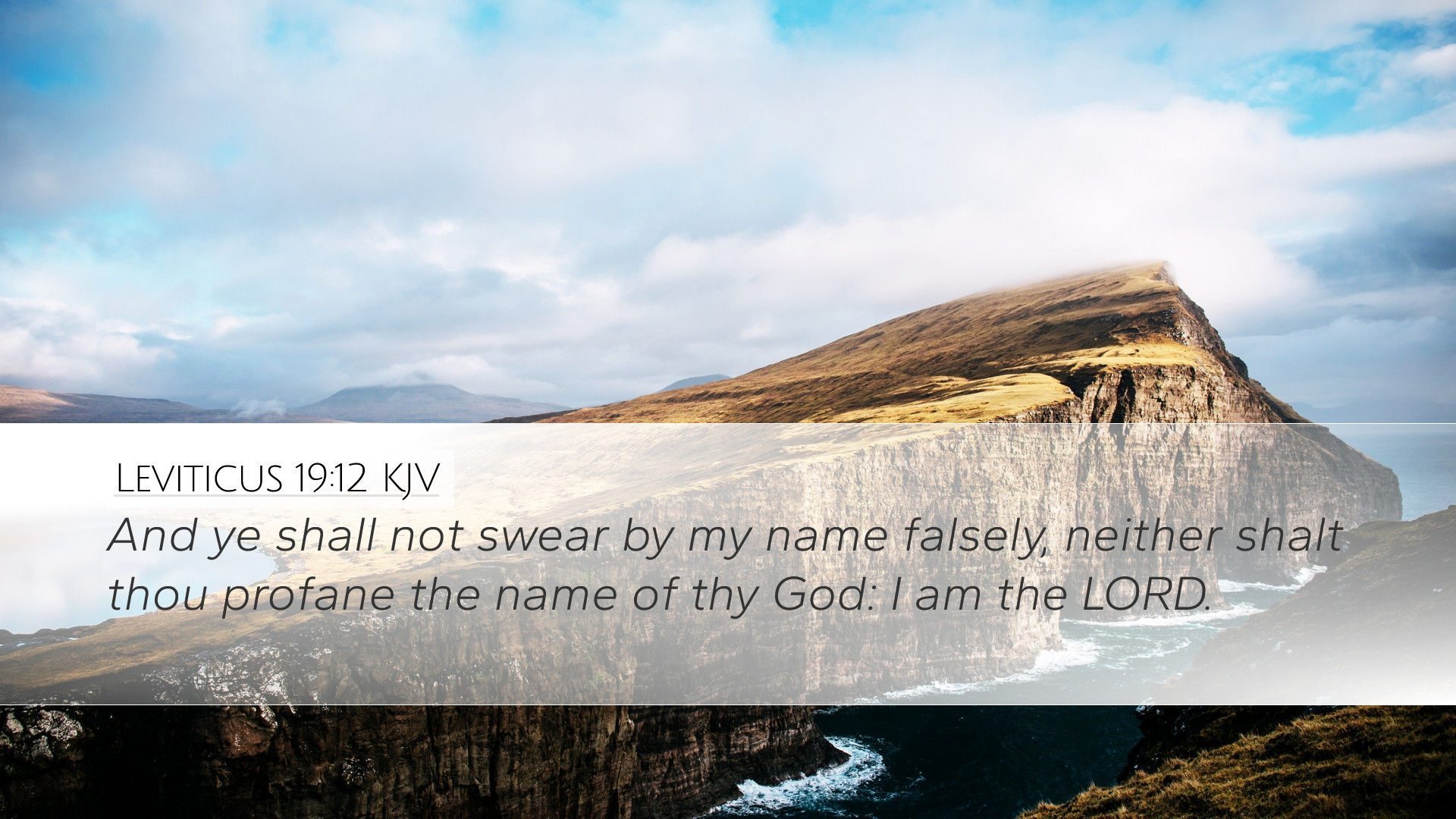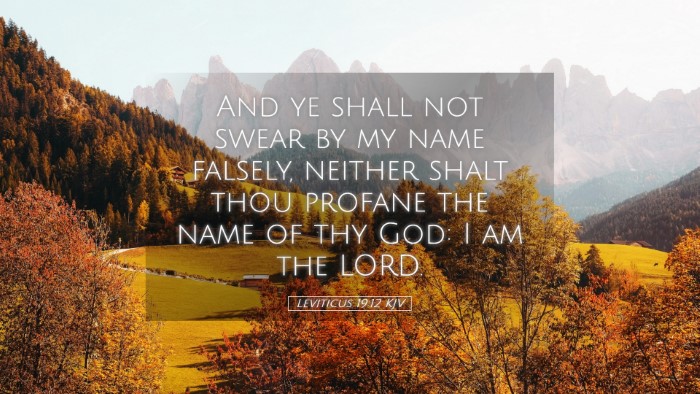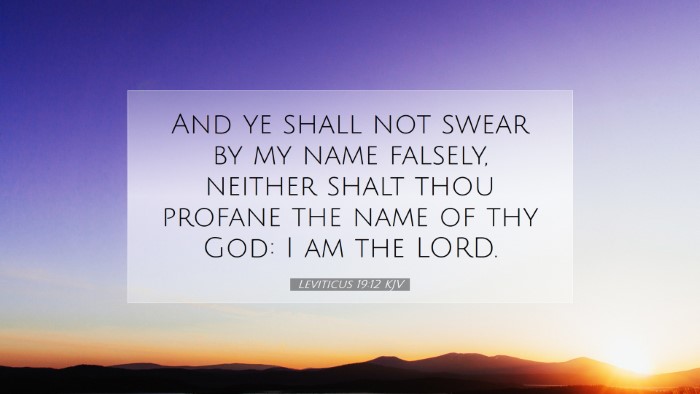Commentary on Leviticus 19:12
Leviticus 19:12 states: "And you shall not swear by My name falsely, nor shall you profane the name of your God: I am the LORD." This verse highlights the seriousness with which the name of God should be treated, emphasizing both the sanctity of oaths and the importance of integrity in speech.
Textual Analysis
This command is part of a series of moral and ethical instructions given to the Israelites. It follows right after a call to holiness and proper conduct towards one another. The use of the phrase "I am the LORD" serves as a reminder of God's authority and the weight of His commandments.
Insights from Matthew Henry
According to Matthew Henry, this verse illustrates that God's name should be honored and revered, as it signifies His character and presence among His people. He emphasizes that to take the name of God in a false manner not only demeans the name itself but also has consequences for the individual's relationship with God.
- Honoring God's Name: Henry points out that swearing falsely by God's name is a serious violation that reflects poorly on the believer's integrity.
- Integrating Speech and Conduct: He remarks that this command correlates to a larger principle in the Bible that emphasizes the alignment of speech and actions.
- Implications of False Oaths: The act of swearing falsely brings dishonor to God’s name and can lead to divine judgment, highlighting the importance of truthfulness.
Insights from Albert Barnes
Albert Barnes elaborates on the verse by exploring the cultural and legal context of oaths during the time of the Israelites. He asserts that swearing by God's name should not be misused for deceitful purposes, asserting that it is a practice designed to invoke God's presence and truth into serious affirmations of one's statements.
- Public vs. Personal Oaths: Barnes explains that while public oaths served legal purposes, they must be taken sincerely, reinforcing the gravity of invoking God's name.
- Profaning God's Name: He further discusses how the profaning of God's name can manifest in casual use or flippant speech surrounding divine matters.
- Theological Implications: The seriousness of this command connects to God's nature as a being of truth, urging believers to emulate this characteristic in their own lives.
Insights from Adam Clarke
Adam Clarke emphasizes the ethical dimension of this command, focusing on the broader implications of morality in social conduct. He discusses how the integrity of one's word is fundamentally connected to one’s faith and the communal perception of God’s covenant people.
- Ethical Living: Clarke argues that living with integrity and being truthful in all dealings is essential for reflecting God's image to the world.
- Sacredness of Oaths: He also mentions the ancient tradition of oaths as contracts that invoke divine witness and require utmost fidelity.
- Consequences of Neglect: Ignoring this command opens the door to casual attitudes towards sin and dishonesty, which can erode community trust and divine blessings.
Theological Reflections
This verse not only addresses specific behaviors concerning swearing and oaths but also conveys a larger theological principle regarding God's nature as holy and trustworthy. For theologians, it represents an essential aspect of understanding covenant relationships and the call to reflect God's character in all aspects of life.
- Holiness of God: The nature of God as holy necessitates that His name, associated with His holiness, is not to be misused.
- Truth as Central to Faith: Truth-telling becomes an integral part of faith and practice, as believers embody the gospel message of integrity.
- Witness to the World: This command serves as a witness to the world about the nature of God, highlighting the importance of being representatives of His truth.
Pastoral Application
For pastors and church leaders, preaching on this verse can lead to meaningful discussions about integrity, the power of words, and the need for authenticity in both personal and communal expressions of faith.
- Encourage Integrity: Pastors can encourage their congregations to uphold truthfulness in their personal and communal lives.
- Teach the Value of God's Name: Efforts should be made to teach people about the sanctity of God's name and how casual use can lead to irreverence.
- Model Faithfulness: Leaders must model the kind of truthfulness that aligns with the character of God, promoting trust and transparency.
Conclusion
Leviticus 19:12 serves as a reminder of the profound responsibility that lies in uttering God's name and making oaths. The insights from Matthew Henry, Albert Barnes, and Adam Clarke provide a rich theological framework that could lead to a deeper understanding of holiness, truthfulness, and moral conduct in the life of a believer. As we seek to embody these principles, we reflect the integrity that God desires, making our lives a testament to His glory.


